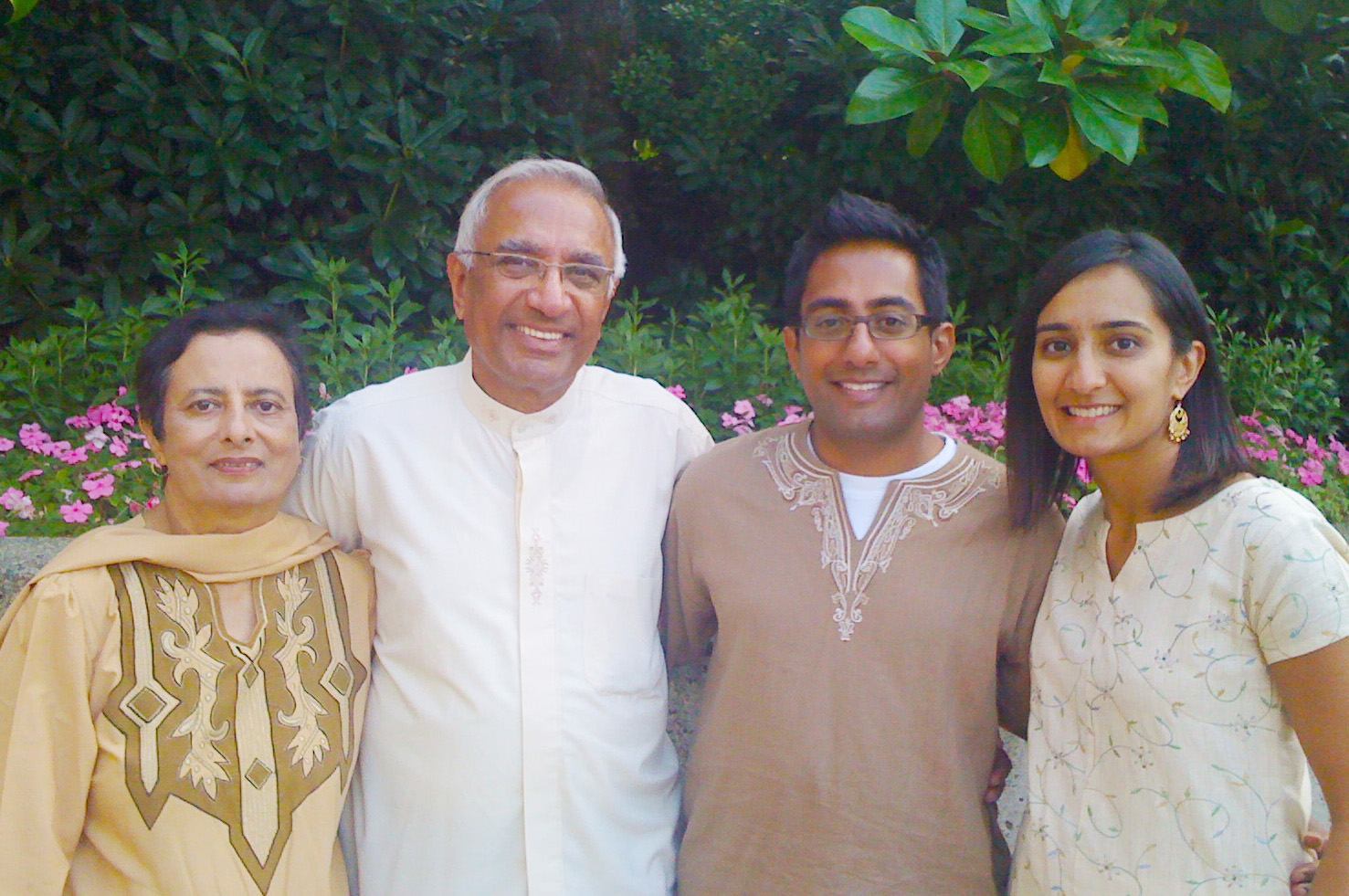The second day of March in 2009 started off like any other for Dr Shainul Waljee, a Vancouver optometrist. But late that night, she lost her home to a fire.
At 11:30 PM, her family of four rose to action as the fire alarm went off in the lobby of their apartment complex. “At first we thought it was a false alarm,” says Dr Waljee, who along with her parents and brother decided to evacuate the apartment as a precautionary measure.
“It was when we tried to get into the elevator that we saw what we were up against,” she recalls. “The elevator was full smoke. We knew then that this was the real thing.”

The Waljees pose for a family photograph in the gardens of the Ismaili Centre, Burnaby. Courtesy of Dr Shainul Waljee
The smoke detectors inside the apartments did not sound, so Dr Waljee and a few others started knocking on neighbours' doors, urging them to wake up and evacuate. When the group made their way downstairs through the staircase, they were horrified to see the lobby of the complex engulfed in flames. Fire was spreading rapidly and it soon blocked the front entrance of the wood-frame building.
When the fire fighters arrived, they were met with total chaos. Several residents – some of whom were Ismaili – were elderly, frail or in ill-health, and had found it difficult to flee. Dr Waljee's mother, Jenny, who had always maintained good relationship with her neighbours, was instrumental in providing the fire fighters with the precise head count of people in some of the suites. “Her quick thinking and presence of mind was instrumental in saving precious lives that day,” says Dr Waljee.
Responding swiftly to the emergency, the municipal government sent volunteers to support the victims of the fire and provided them with emergency shelter and food. The victims were also given CAD $200 each in emergency allowances for food and clothing. Focus Humanitarian Assistance's Regional Disaster Management Team met with families affected by the fire to ascertain their wellbeing.
“The volunteers met with us and made sure we were well provided for,” says Dr Waljee. “Many of the elderly victims were very comforted by their presence.”
Although their apartment didn't suffer much damage, the Waljees decided to move to a better residence. Their renter's insurance paid to move their belongings and even paid a year's rent for their new apartment.
Dr Waljee took away a few good lessons from the ordeal. “We have always had housing insurance,” she says. “Most people don't know how helpful that is, but at a time like this, you realise the value of it. Secondly, make sure you know your neighbours well enough so that you can count on each other in times of emergency.”
The third lesson is the one that Dr Waljee feels would have helped make their ordeal a lot easier. “We realise now that we didn't have a plan,” she says. “Now with disaster preparedness training being provided by Focus Humanitarian Assistance, I feel that we would have benefited, at the very least, from having an emergency kit at hand to take along when we evacuated.”






